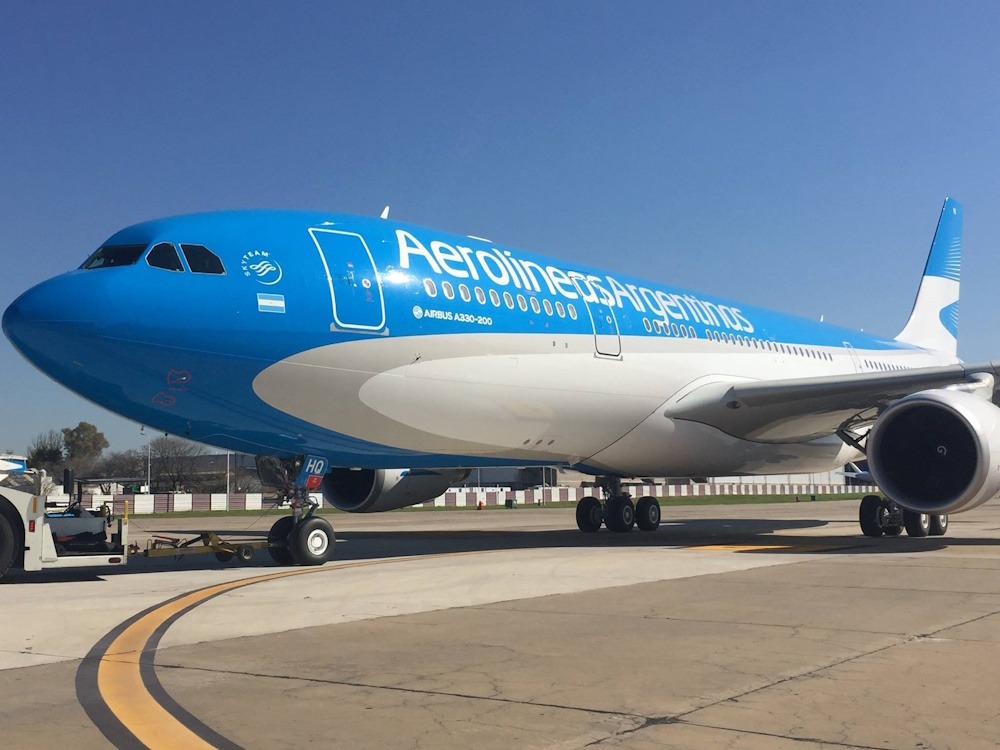Aerolíneas Argentinas has declared that, for the first time since its renationalization in 2008, it will not seek financial support from the national government for the entirety of 2025. The national airline has faced intense debates over privatization efforts since the inauguration of President Javier Milei. This development signifies a significant achievement for the national airline, which has received US$8 billion in government support over the last 16 years to offset its yearly operating deficit of approximately US$400 million.
Following the inauguration in 2023, the Javier Milei administration has initiated steps to privatize Argentina’s largest airline, prompting the company to adjust its strategy in alignment with the demands of a competitive global market. The airline announced a reduction of approximately 15% of its workforce, which includes the departure of 85 senior managers, resulting in a total decrease of 1,600 employees, according to a company statement.
During a press conference on Wednesday, presidential spokesperson Manuel Adorni stated that achieving financial equilibrium at Aerolíneas Argentinas and the state water utility AySA was “a necessary step towards their inevitable privatization.” A representative from the airline stated to the Herald, “Aerolíneas Argentinas’ fleet decisions will be based on its operational and market requirements, as well as its financial capabilities, rather than on funds provided by the government.”
Since 2008, the company’s debt has been addressed by the National Treasury following its nationalization in the initial years of Cristina Kirchner’s presidency. This process was preceded by years of financial mismanagement during the prior period as a private entity under its former proprietors, Iberia, culminating in two years of bankruptcy from 2001 to 2003. “Aerolíneas already competes with other airlines in the domestic and international markets,” stated the spokesperson. In 2024, the company realized an operating surplus amid competitive conditions, characterized by significant deregulation and a liberalized air trade policy. This illustrates that within this framework, the firm is not merely sustainable but also possesses significant potential.
President Javier Milei pledged to privatize the national airline immediately upon assuming office, including it among the enterprises earmarked for privatization in the initial draft of the Ley Bases. However, the clause was subsequently eliminated, and it was absent from the version ratified by Congress last June. In early October, Milei issued an executive order declaring that the company was to undergo privatization. The executive order requires congressional approval; should it be ratified by both houses, the Executive Branch would gain the authority to sell the company.
The discourse surrounding Aerolíneas Argentinas reflects a broader governmental initiative aimed at privatizing the aeronautical sector. A recent “open skies” policy has facilitated the entry of additional foreign airlines into the Argentine market by eliminating a legal stipulation that mandated at least half of domestic flights be operated by Aerolíneas Argentinas. In the interim, the recent regulatory changes enacted in July facilitate the entry of additional low-cost carriers, as four new international airlines have received authorization to commence operations in Argentina.
In October, Governor Axel Kicillof of Buenos Aires Province remarked that during the previous period when Aerolíneas Argentinas was privately owned, the airline ceased operations to numerous destinations, thereby isolating residents in remote regions from the rest of the nation. As Aerolíneas Argentinas embarks on its journey to operate independently of government support, the question arises whether this transition will lead to an expansion or contraction in its network of destinations moving forward.
“The definition of new — or reduced — domestic or international routes will depend on the commercial potential identified by the company,” stated the airline’s spokesperson.

